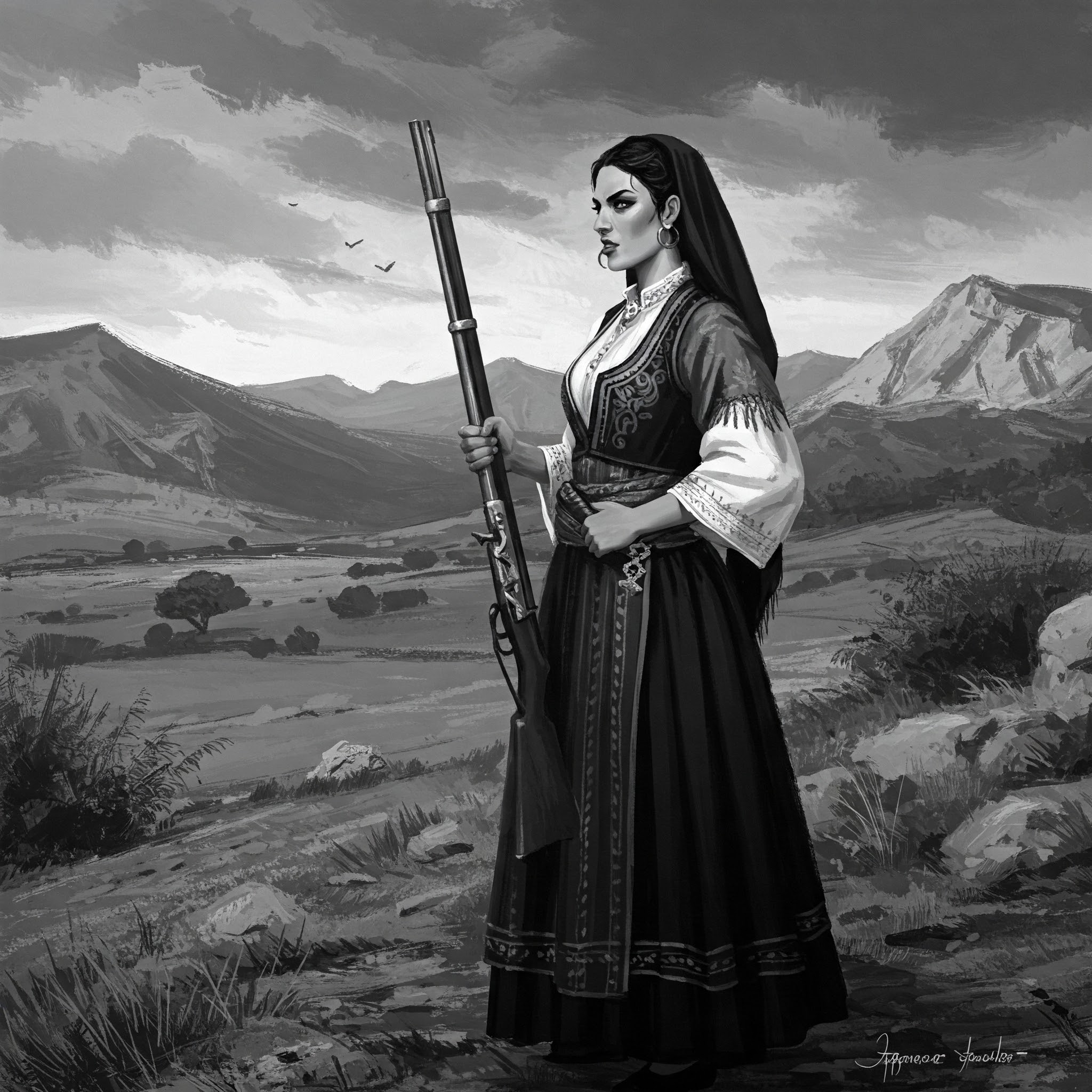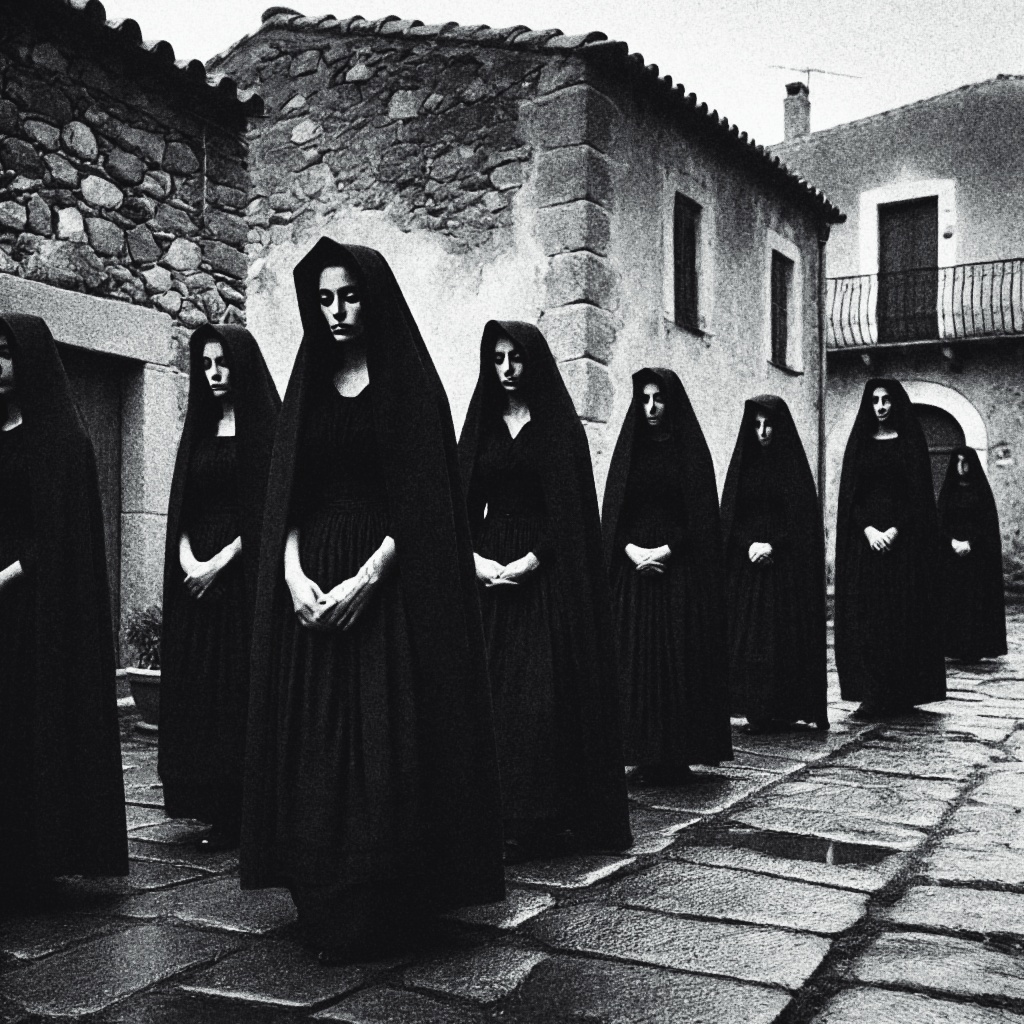In 1705, a bright-eyed girl named Lucia Delitala was born in Nulvi, into a noble family. The Delitala clan weren’t exactly peace-lovers: they were in a constant feud with each other. The family was divided into two factions that had been at war for years. On top of that, they were politically persecuted for their loyalty to the Spanish crown rather than the House of Savoy. So, out of necessity, they lived with rifles in hand.
As always, a person’s character is shaped by the events and personalities that echo through their formative years. And little Lucia’s childhood seemed more filled with war cries than sweet lullabies: some Delitala were in prison, two sentenced to death, others had gone into hiding. And young Lucia did her part too: it’s said that she used to slit cats’ throats and sell them at the market, and that she’d go around cutting the dresses of well-dressed women with little scissors, as punishment for their vanity when going to church.
Perhaps to atone for all these sins, the Delitala family had the Church of the Blessed Virgin Assunta built in Nulvi.
As if that weren’t enough, what was happening in Sardinia at the time was no small thing: we’re in Nulvi, in the first half of the 18th century, during the early years of the new Savoyard rule in northern Sardinia—a land full of outlaws and rebels.
Lucia, now a grown woman, didn’t like this new rule one bit: fiercely attached to her noble heritage, she preferred the Spanish nobility to the Savoyards. Her rebellious nature merged with history, pushing her to defy the new rulers, a perfect mix of charisma and resistance.
“She refused to marry so she wouldn’t have to depend on a husband, according to her own words. She has a grenadier’s moustache, and handles weapons and horses like a policeman,” wrote the Viceroy to King Charles Emmanuel III.
From 1718 onward, when the Piedmontese took control of Sardinia, a real war against banditry began.
And if God pairs souls together, the rebel Donna Lucia joined forces with the bandit Giovanni Fais from Chiaramonti and his wife Chiara, creating a criminal alliance that led a powerful army to fight the Savoyard forces. Donna Lucia was a real bandit: she gave orders to men, commanded massacres and killings, and was both feared and respected. But, being noble, she didn’t hide in the harsh Sardinian countryside like the others, she slept in her luxury villa. Still, she remained a legendary amazon: leader of the outlaws, riding horseback with her rifle ready to face enemies in the woods.
She died between 1755 and 1767, no one knows where, how, or why. Some say she was strangled in her bed; others say she was burned alive with her lover.
In Nulvi, according to the tombs of the Delitala family, she never existed: her name appears on no gravestone.
But even if Lucia Delitala left most of her fortune to the churches of Chiaramonti, she left something even greater to the Sardinians: the myth of rebellion, which, though it seems to fade, still lives on in Sardinia’s oldest roots.



